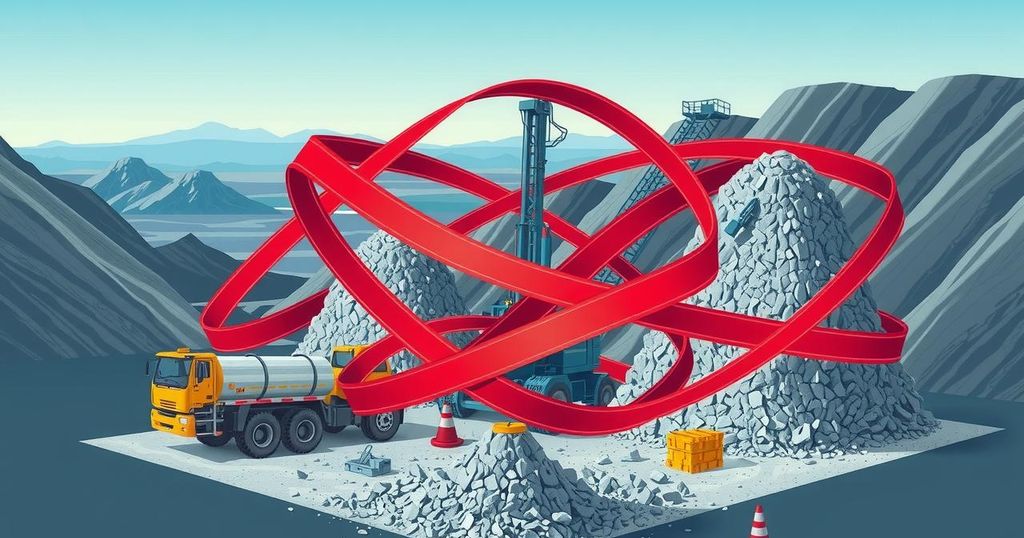Brazil faces challenges in attracting investment in its mining sector due to a lengthy licensing process, leading to concerns expressed by industry leaders. Major investments projected up to $68.4 billion could increase if permits were granted more swiftly, as other nations manage this process more efficiently. The situation extends beyond mining, as Petrobras also struggles with regulatory hurdles.
Brazil’s burgeoning demand for critical minerals presents a significant opportunity; however, the lengthy licensing process is stifling development within the sector. Raul Jungmann, the CEO of Ibram and former head of Brazil’s environmental agency, highlighted that the seven to eight-year waiting period for permits is causing a reduction in investment interest. He made these remarks at the strategic minerals conference hosted by the Brazilian Development Bank in Rio de Janeiro.
Projected investments by major mining companies in Brazil could reach $68.4 billion from 2025 to 2029, potentially exceeding this amount if the permitting process were expedited. Jungmann noted that other countries manage to approve licenses in half to one-third of the time it takes in Brazil, further underscoring the need for reform in this area.
Brazil boasts the largest niobium reserves, second-largest graphite reserves, and third-largest reserves of rare earth elements and nickel globally, in addition to being a leading producer of iron ore, with Vale SA being a notable player in the industry. While Brazil is known for having independent regulators enforcing strict environmental and safety standards, not only miners are expressing concerns regarding regulatory hurdles.
Petrobras, Brazil’s state-controlled oil producer, is also facing challenges with regulatory approvals. CEO Magda Chambriard stated that the company has been awaiting permission to commence drilling in the Foz do Amazonas basin since 2020—a project anticipated to unlock a significant offshore resource. Last month, she remarked that the company is encountering more issues with the environmental agency Ibama than with the oil and gas regulator, which recently halted operations of one of Petrobras’s production vessels.
In summary, Brazil’s strict and lengthy permitting process for mineral projects is inhibiting investment potential in its mining sector, despite the country’s rich resources and strong global demand for critical minerals. Urgent reforms to streamline this process could attract more investment, with significant projected capital inflows from major mining companies. Furthermore, these regulatory challenges affect not only mining but also other sectors including oil production, highlighting a broader issue within Brazil’s resource management regulatory framework.
Original Source: www.mining.com




